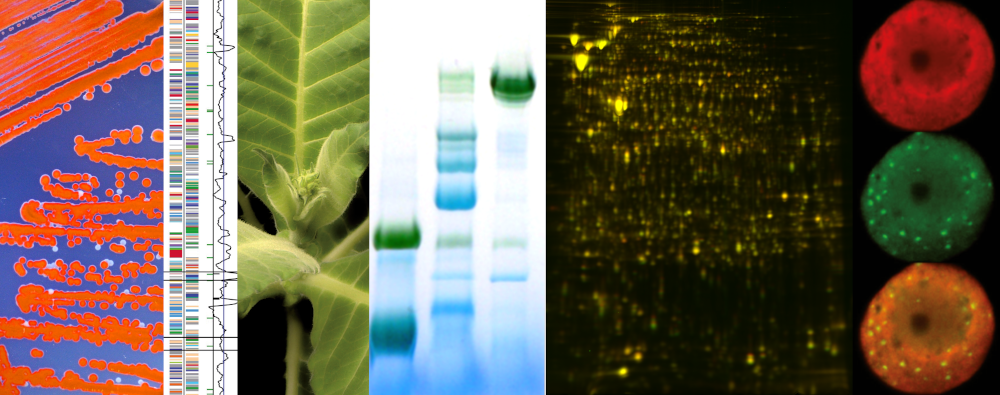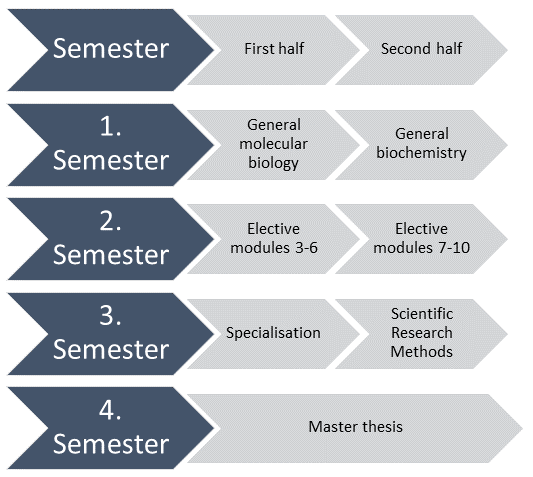- GU Home
- Faculties
- Studying
- Study Programmes
- Master
- Molecular Biosciences
MSc MBS - Master Molecular Biosciences

The Master's degree course in Molecular Biosciences is offered at the Faculty of Biosciences at Goethe University, Frankfurt. The course starts each winter semester. The Master's program is taught exclusively in English. Applications from national and international students are welcome.
- Click here for general information about the application
- Click here for the official application page of the Goethe University
The M.Sc. Molecular Biosciences is research-oriented,
- provides in-depth training in fundamental molecular issues in genetics, biochemistry, microbiology, physiology, cell biology and biotechnology.
- includes intensive training in various methodological and conceptual areas of the aforementioned fields.
- studies fundamental molecular questions using unicellular organisms (archaea, bacteria, yeasts, algae) and plants.
The qualification objectives and the acquisition of skills in the Msc Molecular Biosciences are explained in the introductory part of the study regulations, the description of the individual course contents of the modules can be found in the in the module handbook (see box at the top right).
Structure of the program

During the second semester elective modules provide a specialisation.
First half
- Plant biochemistry (Büchel)
- Bioinformatics (Ebersberger)
- Plant physiology (Böhmer)
- RNA biology (Wöhnert)
Second half
- Molecular and applied microbiology (Müller)
- Plant genetics (Stahl)
- RNA biology of eukaryotes (Müller-McNicoll)
- Biosynthesis of natural products (Helfrich)
- Molecular cell biology and biochemistry of eucaryotic systems (Fragkostefanakis/Schleiff)
- Structure biology (Wöhnert)
Further specialisation is offered during lab practicals in the first half of the third semester.
FB 15 - Biological Sciences
Program Coordinator
Dr. Markus Fauth
m.fauth@bio.uni-frankfurt.de
Biocentre, Campus Riedberg
Building N210, Room 2.07
Max-von-Laue-Str. 9
60438 Frankfurt am Main
T +49 69 798-29603
Program Director
Prof. Dr. Claudia Büchel
info-mbw@bio.uni-frankfurt.de
Biocentre, Campus Riedberg
Building N210, Raum 2.07
Max-von-Laue-Str. 9
60438 Frankfurt am Main
- Studying at Goethe University
- International applicants
- Faculties
- Overview of study programmes
- Programme for refugees
- GRADE
- Goethe Business School (continuing education)
- Research at Goethe University
- Scientific news
- Goethe Welcome Center (for international researchers)
- Collaborative research projects
- Individual research
- Visiting fellowships
- Endowed chairs
- About the University
- News-in-brief
- University administration
- Campus locations
- Campus life
- University archives (German)
- Rhine-Main-Universities





